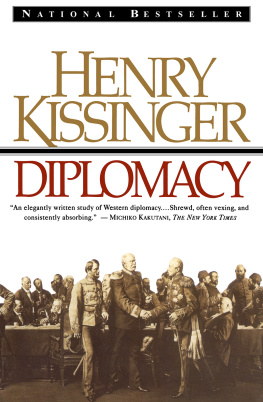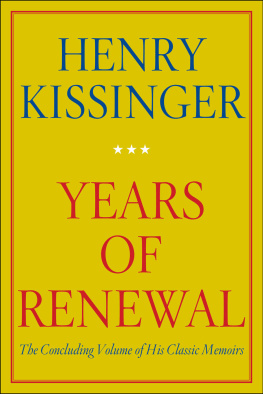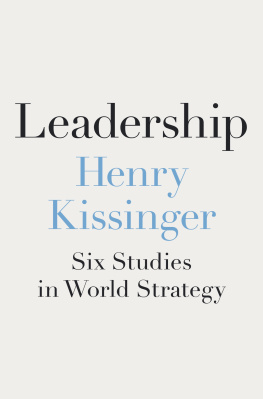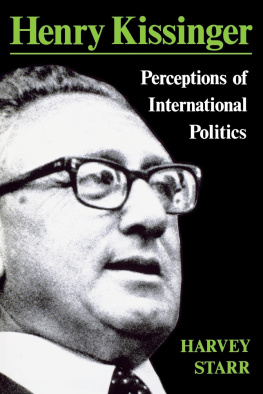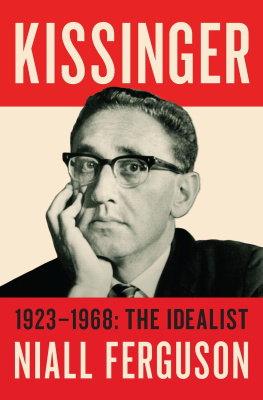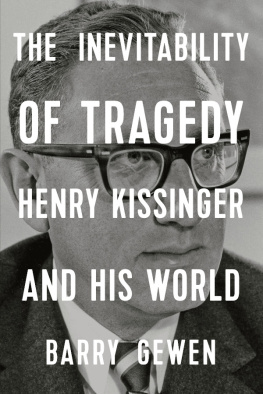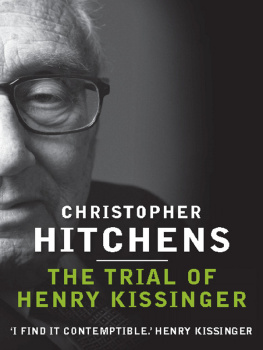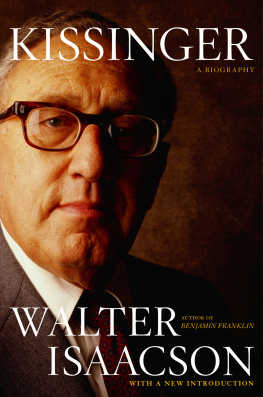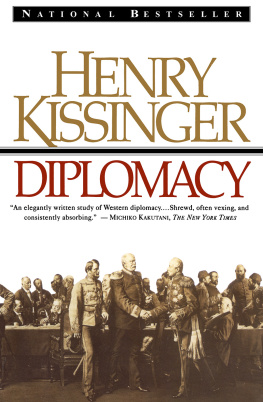Thomas A. Schwartz - Henry Kissinger and American Power: A Political Biography
Here you can read online Thomas A. Schwartz - Henry Kissinger and American Power: A Political Biography full text of the book (entire story) in english for free. Download pdf and epub, get meaning, cover and reviews about this ebook. year: 2020, publisher: Farrar, Straus and Giroux, genre: Politics. Description of the work, (preface) as well as reviews are available. Best literature library LitArk.com created for fans of good reading and offers a wide selection of genres:
Romance novel
Science fiction
Adventure
Detective
Science
History
Home and family
Prose
Art
Politics
Computer
Non-fiction
Religion
Business
Children
Humor
Choose a favorite category and find really read worthwhile books. Enjoy immersion in the world of imagination, feel the emotions of the characters or learn something new for yourself, make an fascinating discovery.

- Book:Henry Kissinger and American Power: A Political Biography
- Author:
- Publisher:Farrar, Straus and Giroux
- Genre:
- Year:2020
- Rating:3 / 5
- Favourites:Add to favourites
- Your mark:
- 60
- 1
- 2
- 3
- 4
- 5
Henry Kissinger and American Power: A Political Biography: summary, description and annotation
We offer to read an annotation, description, summary or preface (depends on what the author of the book "Henry Kissinger and American Power: A Political Biography" wrote himself). If you haven't found the necessary information about the book — write in the comments, we will try to find it.
Henry Kissinger and American Power: A Political Biography — read online for free the complete book (whole text) full work
Below is the text of the book, divided by pages. System saving the place of the last page read, allows you to conveniently read the book "Henry Kissinger and American Power: A Political Biography" online for free, without having to search again every time where you left off. Put a bookmark, and you can go to the page where you finished reading at any time.
Font size:
Interval:
Bookmark:
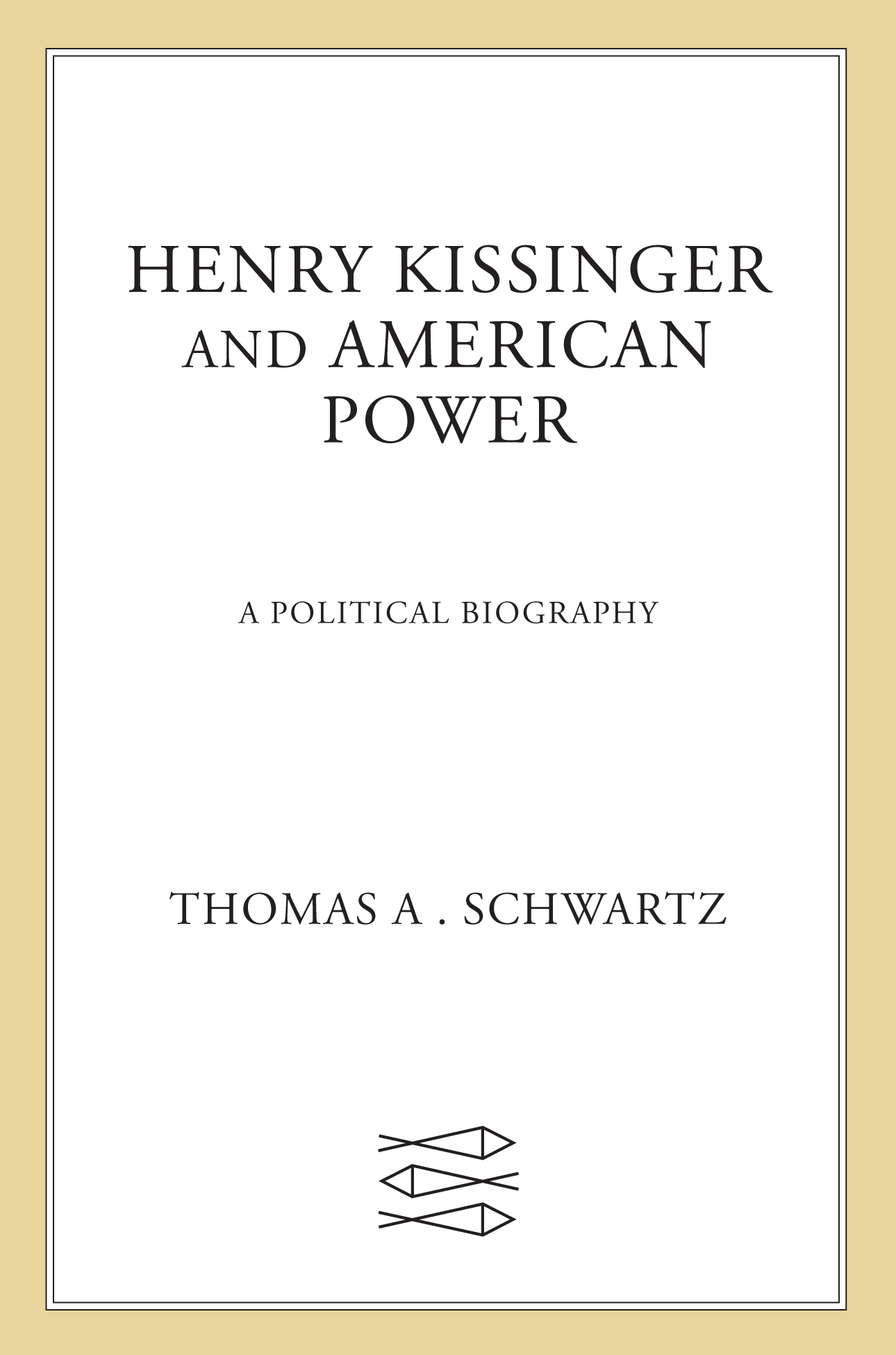

The author and publisher have provided this e-book to you for your personal use only. You may not make this e-book publicly available in any way. Copyright infringement is against the law. If you believe the copy of this e-book you are reading infringes on the authors copyright, please notify the publisher at: us.macmillanusa.com/piracy.
To my daughters, Helene, Evie, and Marigny. They are the treasures of my life.
WHEN I FINALLY GOT THE OPPORTUNITY to interview Henry Kissinger, and made my way through security into his Park Avenue office, the former secretary of state asked me what type of book I had planned. I told him I hoped to write a short and concise biography, using his career as a prism through which to explore the modern history of American diplomacy. Looking somewhat puzzled, he replied, in his inimitable German accent, But you will leave things out.
Henry Kissinger is the most famous American diplomat of the twentieth century. He may well be one of the most heavily documented public figures in American history. He wrote not only three volumes totaling four thousand pages of memoirs, but also other books, articles, speeches, and op-eds that would fill several library shelves. When I began my research, the late Harry Howe Ransom, a Vanderbilt University colleague who had worked with Kissinger in the 1950s, joked that Henry never had an unpublished thought. As Kissinger continues his commentary on American foreign policy well into a seventh decade, Ransom may well be right. As national security adviser and secretary of state, Kissinger left an unprecedented paper trail of memoranda of conversations, policy papers, and telephone conversations that record almost every day of his eight years in office. His presence is also significant in the 3,700 hours of the Nixon tapes. Indeed, it was a formidable challenge to write anything short and concise about Henry Kissinger.
For these reasons it may be best to start out with explaining what this book isnt. This book is not a full biography of Kissinger the man, and it is not an attempt to make conclusions about his family life and personal relationships. The historian Niall Ferguson has undertaken that project, with the cooperation of Kissinger, and Ferguson has access to Kissingers personal papers. Still, his work is extremely important for the light it sheds on such topics as Kissingers first years in the United States, his service during and after World War II, and his role in Vietnam negotiations before becoming national security adviser.
My book is also not an attempt to review every claim, accusation, and historical argument that has been made about Henry Kissinger. Covering the wide array of secondary literature about Kissinger would take a small army of historians. Although I make a number of judgments about Kissingers diplomacy and political behavior, I shy away from the thundering moral pronouncements of condemnation that are commonplace among academics and political activists. Writing dispassionately about a man whom some call a war criminal and lump together with figures like Slobodan Miloevi or Pol Pot is not easy. Greg Grandins Kissingers Shadow indicts Kissinger for not only the actions he took while in power but also the endless wars that have characterized American foreign policy ever since. The extreme praise and vilification Kissinger receives does little to provide any real understanding of the historical role he has played, or the consequences and legacy of his public life and career. In studying Kissinger, I have attempted to gain an insight into a personality in power, a brilliant man who thought seriously and with great insight about the foreign policy issues of the time, but who was prone to deception and intrigue, highly skilled at bureaucratic infighting, and given to the ingratiating and fawning praise of the president as the source of his power. Kissinger was also a genius at self-promotion, becoming a celebrity diplomat, a man whose activities were chronicled in the entertainment and society pages as well as in the news sections. He was indeed larger than life, negatively as well as positively.
This book aims to reintroduce Henry Kissinger to the American people and to an international audience. It is not quite the short and concise book I had hoped it would be. It is much shorter than it would have been had I delved into every aspect of Kissingers role in foreign policy. There are still many Americans, mostly now sixty and over, who well remember Kissinger. In the mid-1970s he ranked as the most admired American, enjoying close to universal acclaim. In the dawning age of globalization, he was internationally famous, one of the most recognizable figures on the planet. For a younger generation of Americans, the students I teach, Henry Kissinger is not very well known or understood. This book is written for them, as an attempt to explain who Henry Kissinger was, what he thought, what he did, and why it matters. Kissinger was an immensely powerful and important figure during a critical period in recent American history, and his career reflects on many of the enduring and important questions connected to U.S. foreign policy.
Each chapter of the book begins with a television news vignette, explaining in part how viewers saw the career of Henry Kissinger unfold in their living rooms. The first describes the course of Kissingers life from refugee to presidential adviser, a life and career shaped by the extraordinary changes in Americas world position as well as by the actions and sheer good fortune of the brilliant and ambitious Kissinger. His ascent owed much to his personal qualities, but it also provides an insight into America during the Cold War era, when universities like Harvard and politicians like Nelson Rockefeller needed the expertise and talents of men like him. The next three chapters cover Kissingers role as national security adviser, a position that answers to a constituency of one, the president of the United States. Chapter 2 tells the relatively unhappy story of the first two years of the Richard Nixon administration, as its attempt to start fresh with American foreign policy largely failed because it could not end the Vietnam War. This failure did not detract from the rise of Henry Kissinger to a position as the presidents principal adviser on foreign affairs, supplanting the secretary of state and controlling foreign policy from the White House. Chapter 3 takes the story through 1971, which began with the disastrous invasion of Laos but which saw Nixon and Kissinger surprise the world with the announcement of a trip to China. Kissingers role in Nixons foreign policy helped the president within the domestic political arena and also enhanced Kissingers personal fame, despite a stumble in South Asia, as he became known as Nixons secret agent. Chapter 4 records what Kissinger called the trifecta of 1972the trip to China, the Moscow summit, and the Paris Peace Accords with North Vietnamthat helped propel Nixon to a landslide electoral victory and Kissinger to international stardom. This marriage between geopolitical realism and American domestic politics, engineered by Nixon and Kissinger, was always a tenuous one, but it served the electoral purposes of Nixon and even won Kissinger a Nobel Peace Prize.
The second half of the book examines Kissinger at the height of his fame. Chapter 5 records Kissingers appointment as secretary of state, an appointment Nixon was forced to make because of Watergate. Nixons standing plummeted with the scandal, and Kissinger assumed the preeminent role within the administration. He achieved extraordinary success in launching the Middle East peace process, pushing the Soviet Union out of that region and putting the United States at the center of its diplomacy. His understanding and manipulation of the media, both print and electronic, enhanced the authority and power he exercised. By the time Nixon resigned, Kissinger had become the most powerful figure in Washington.
Font size:
Interval:
Bookmark:
Similar books «Henry Kissinger and American Power: A Political Biography»
Look at similar books to Henry Kissinger and American Power: A Political Biography. We have selected literature similar in name and meaning in the hope of providing readers with more options to find new, interesting, not yet read works.
Discussion, reviews of the book Henry Kissinger and American Power: A Political Biography and just readers' own opinions. Leave your comments, write what you think about the work, its meaning or the main characters. Specify what exactly you liked and what you didn't like, and why you think so.

